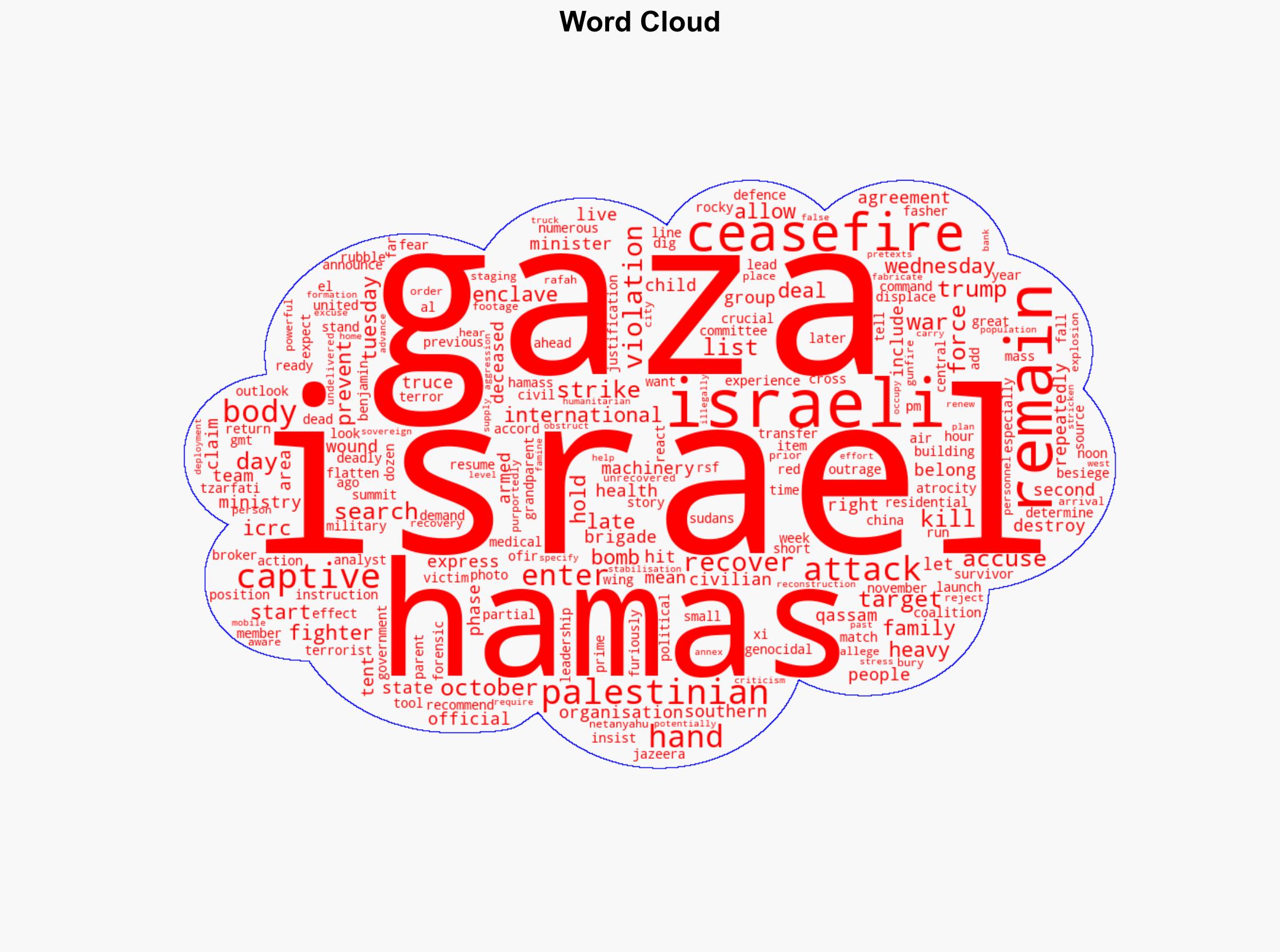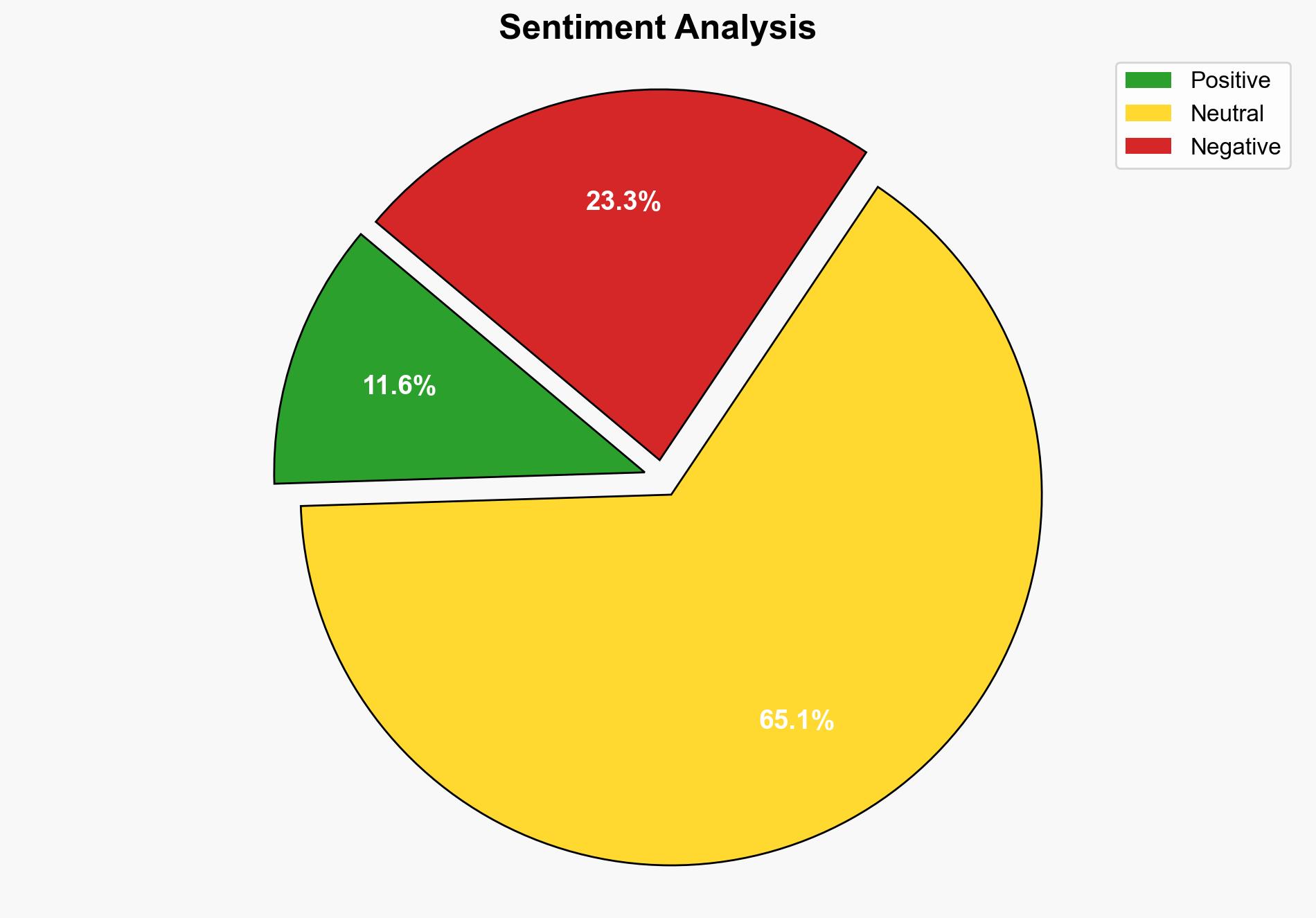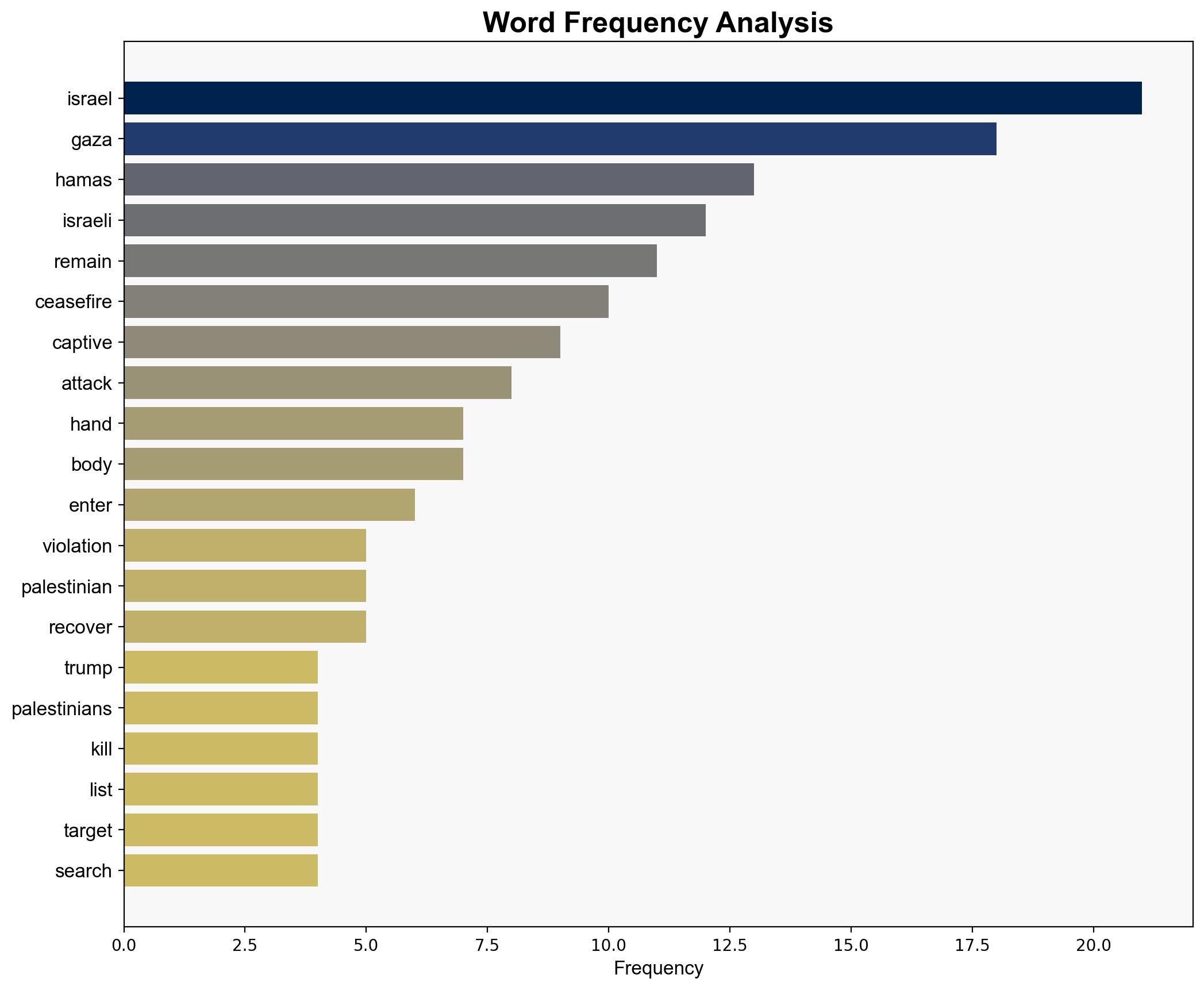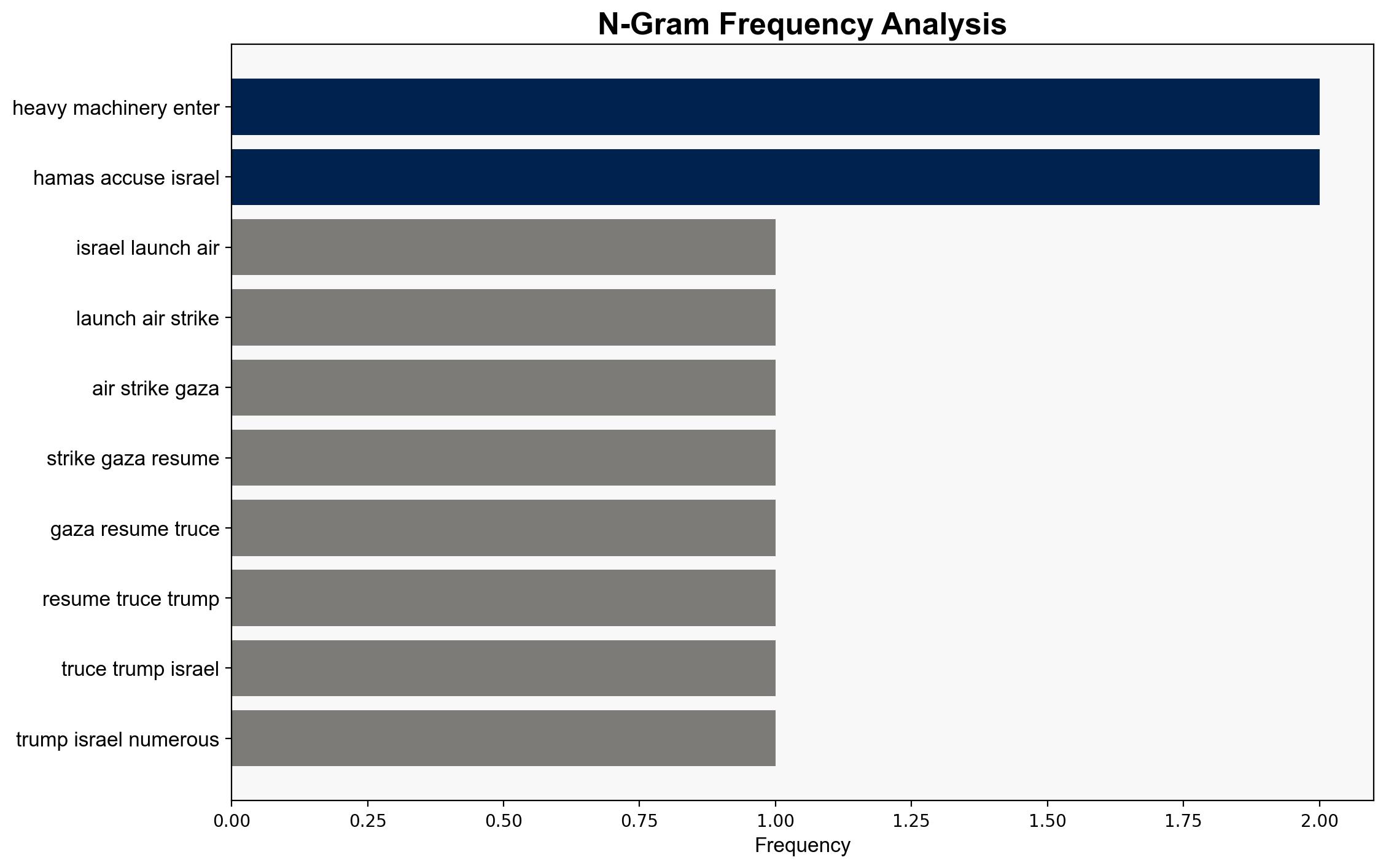Why did Israel launch air strikes on Gaza then resume truce – Al Jazeera English
Published on: 2025-10-29
Intelligence Report: Why did Israel launch air strikes on Gaza then resume truce – Al Jazeera English
1. BLUF (Bottom Line Up Front)
Israel’s air strikes on Gaza followed by a resumption of the truce appear to be driven by a combination of strategic military objectives and political pressures. The most supported hypothesis is that Israel aimed to respond to perceived threats and domestic political pressures while maintaining international diplomatic relations. Confidence level: Moderate. Recommended action: Monitor developments closely, particularly any shifts in political rhetoric or military postures, to anticipate further escalations or diplomatic resolutions.
2. Competing Hypotheses
1. **Retaliatory Action Hypothesis**: Israel launched air strikes in retaliation for perceived violations by Hamas, aiming to degrade Hamas’s military capabilities and respond to domestic political pressures demanding action.
2. **Strategic Posturing Hypothesis**: The strikes were a calculated move to reassert military dominance and leverage in ongoing negotiations, using the resumption of the truce to maintain international diplomatic support.
Using Analysis of Competing Hypotheses (ACH), the Retaliatory Action Hypothesis is better supported by the immediate context of alleged ceasefire violations and domestic political pressures. However, the Strategic Posturing Hypothesis cannot be dismissed due to the timing of the strikes and subsequent truce resumption, suggesting a broader strategic calculus.
3. Key Assumptions and Red Flags
– **Assumptions**: The assumption that Hamas was responsible for ceasefire violations may not be fully substantiated. The belief that international diplomatic relations will remain stable despite the strikes is also an assumption.
– **Red Flags**: Inconsistent reports about the nature and targets of the strikes, potential cognitive bias in interpreting Hamas’s actions, and the possibility of misinformation or propaganda influencing perceptions.
4. Implications and Strategic Risks
– **Escalation Risks**: Continued military actions could lead to broader regional instability and increased civilian casualties, potentially drawing in other regional actors.
– **Diplomatic Risks**: Strains on international relations, particularly with countries mediating the ceasefire, could arise if the conflict escalates.
– **Economic Risks**: Prolonged conflict may disrupt economic activities and humanitarian aid, exacerbating the humanitarian crisis in Gaza.
5. Recommendations and Outlook
- Encourage diplomatic engagement to reinforce the ceasefire and address underlying grievances.
- Enhance intelligence gathering to verify claims of ceasefire violations and prevent misinformation.
- Scenario Projections:
- Best Case: Ceasefire holds, leading to renewed peace talks and humanitarian aid access.
- Worst Case: Escalation into a broader conflict involving regional actors.
- Most Likely: Periodic skirmishes with intermittent ceasefire violations, requiring ongoing diplomatic efforts.
6. Key Individuals and Entities
– Benjamin Netanyahu
– Ofir Tzarfati
– Qassam Brigade
– International Committee of the Red Cross (ICRC)
7. Thematic Tags
national security threats, counter-terrorism, regional focus, diplomatic relations




